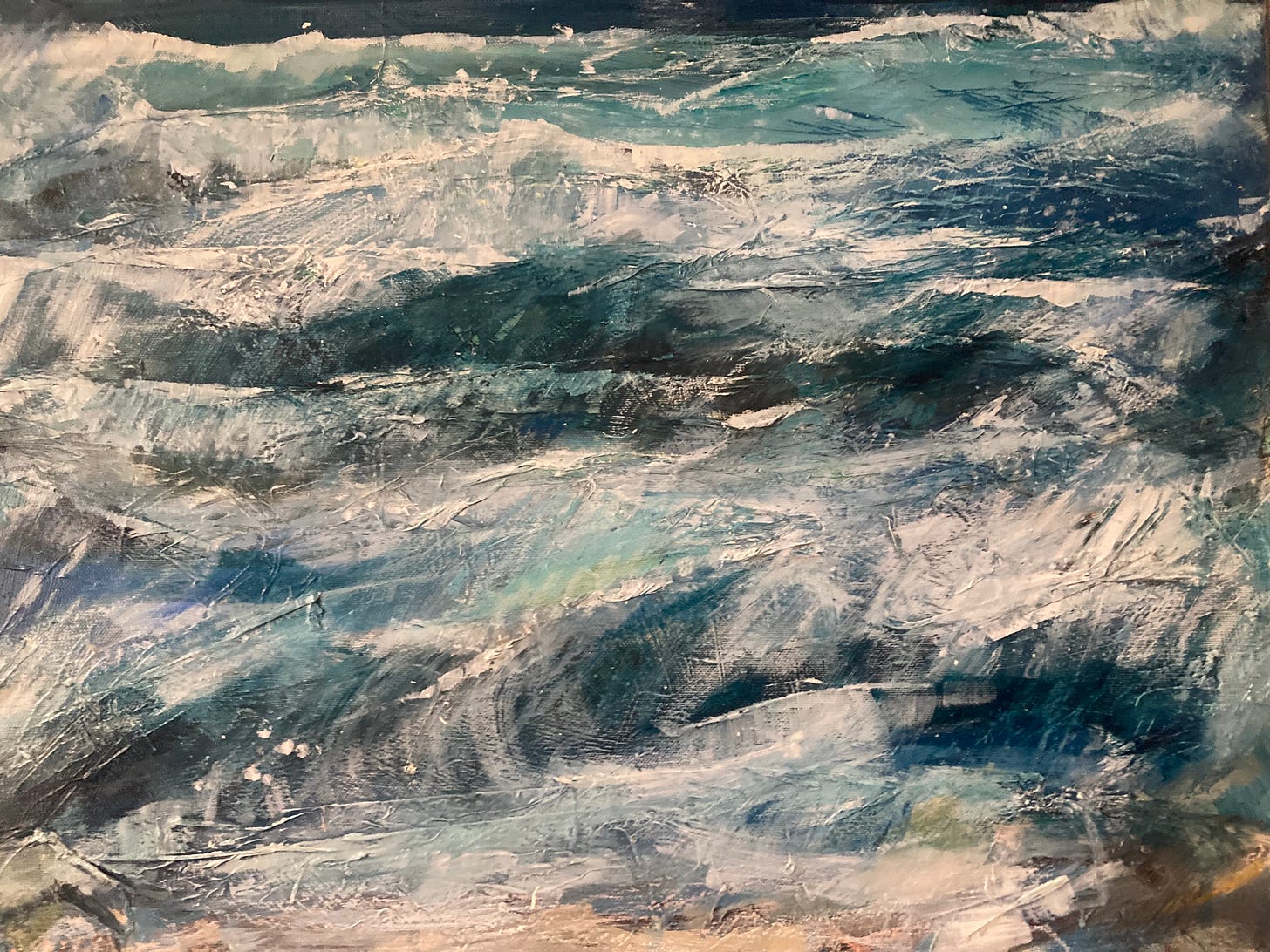Catalyst
In Chemistry, a catalyst is a substance that causes or accelerates a chemical reaction without itself being affected. In social use the word is used to describe a person, thing, event, that creates a change, so the notion “without itself being affected” might be lost. There isn’t space to talk about ‘not being affected’ in this post, as I do think we are affected by what happens, so fancying ourselves to be catalysts needs looking at. For now consider this mole cricket that looks like a science fiction monster, though they grow only 3 - 5 cms .
I really mean look at what Chiara Marletto has to say about the amazing mole cricket in her amazing book “The Science of Can and Can’t”. Short version in my words (from pp 139 - 146): the cricket creates circular holes, as a child she tried to tempt the creature out by messing up its entrance with leaves and soil. The next day, the hole, circular and cleaned up, would be as it was before. Continue, repeat, etc. The cricket recreates his hole until he gets fed up or the gardener/farmer maybe drives him away. Chiara is now a physicist who considers that knowledge can be objective, obeying laws of physics, outside our minds whether we know the knowledge or not.
Using the cricket story she illustrates that most changes, or transformations, that happen, require something to remain unchanged. When child Chiara changed the soil and the grass and the hole shape, the thing that remained unchanged was the cricket. And, even after this particular cricket was not there, she knew there were many more of the creatures making mole cricket holes perfectly, so the reproductive system and DNA for mole crickets would be the unchanging thing. In other words, an information system, a recipe for holemaking, exists, can be identified, and is resilient. The definition of resilience being used here is the capacity of a system to maintain itself in existence in an otherwise changing environment. [p.3].
Eventually the definition of objective knowledge is reached: information that is capable of being instantiated in physical systems. Then… wait for it … [p.155]
Unlike most definitions of knowledge, the good thing about this one is that it does not depend on there being a knowing subject.
People who know me, are aware of my long-standing interest in thinking, and thinking about thinking, following on from the work of psychoanalyst Wilfred Bion. In a previous post on my experimental blog I wrote:
Wilfred Bion described “truth” and distinguished true thinking from a process that produced a “lie”. … true thought is external to any thinker, and the problem of thinking is whether or not a thinker could entertain a true thought. A lie (I wish he had used a different word, like pre-judgment) was simply called this as it represents a categorically distinct thought process: the thinker of a lie, consciously or unconsciously, was seeking personal significance.
In other words, Bion stated that thought exists without a thinker. That is, whether anyone thinks it or not. Now Chiara offers some necessary properties of this kind of thought, different from thoughts we produce from those frames and notions we arrange and re-arrange in our minds. A connection from two different disciplines!
Some people have found the thought-without-a-thinker notion clean daft, some have launched into philosophy such as Plato, and his concept of ‘ideals’, some, like me, are fascinated, and have dived in to explore, and find over and over again that vistas open. In this amazing world of life and living, always evolving and changing, I walk with wonder. Now I wonder what it is that stays unchanged as the world we are in evolves.
Alongside these ideas lie attitudes of accepting ‘not-knowing’. This counters the illusion that we could be omniscient. Note Chiara’s title includes can’t; while Bion spoke of forgetting memory and desire. I will write of the value of owning our limits and not-knowing another time. And, I hope to write some more about what kind of catalyst we could find so that the world might change for the better in this time of multiple crises. (Might it be a truthful idea? There are certainly plenty around that fail the truth test.)
For now, I want to share a great poem I found recently:
Entirely, Louis MacNeice
If we could get the hang of it entirely
It would take too long;
All we know is the splash of words in passing
And falling twigs of song,
And when we try to eavesdrop on the great
Presences it is rarely
That by a stroke of luck we can appropriate
Even a phrase entirely.If we could find our happiness entirely
In somebody else’s arms
We should not fear the spears of the spring nor the city’s
Yammering fire alarms
But, as it is, the spears each year go through
Our flesh and almost hourly
Bell or siren banishes the blue
Eyes of Love entirely.And if the world were black or white entirely
And all the charts were plain
Instead of a mad weir of tigerish waters,
A prism of delight and pain,
We might be surer where we wished to go
Or again we might be merely
Bored but in brute reality there is no
Road that is right entirely.
As I just love that phrase ‘a mad weir of tigerish waters’, I will finish for now with a photo of a painting by artist Sarah Robinson:





